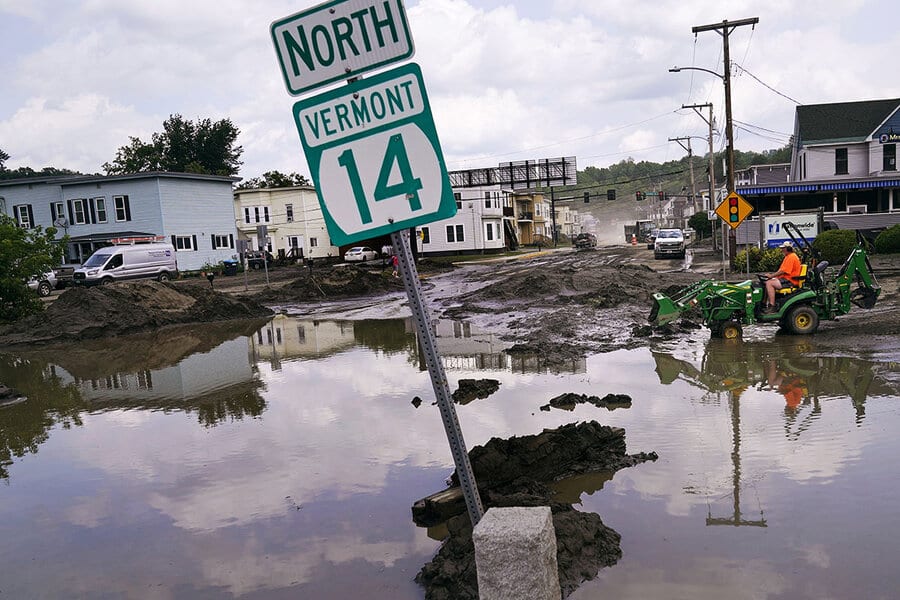
Should HUD’s Community Development Block Grant for Disaster Recovery be Permanently Authorized & Improved? (H.R. 3702)
Do you support or oppose this bill?
What is H.R. 3702?
(Updated December 12, 2019)
This bill — the Reforming Disaster Recovery Act of 2019 — would permanently authorize the Community Development Block Grant - Disaster Recovery (CDBG-DR) program. This program gives states and communities flexible, long-term recovery resources to rebuild affordable housing and infrastructure after a disaster.
This bill would provide safeguards and tools to help ensure that federal disaster recovery efforts reach all impacted households, including lowest-income seniors, disabled people, families with children, the homeless, and others who are hardest-hit by disasters, and who have the fewest resources to recover. To this end, it would:
-
Require the equitable distribution of federal disaster recovery dollars between homeowners, renters, and people experiencing homelessness;
-
Require that the use of federal recovery funds is balanced between rebuilding infrastructure and housing;
-
Require federal recovery dollars be used to replace affordable housing for low-income residents by prioritizing the one-for-one replacement of damaged or destroyed public or federally subsidized rental housing;
-
Maintain the current requirement that 70% of federal recovery funds benefit low- and moderate-income people, and give the Dept. of Housing and Urban Development (HUD) clearer direction on how to adjust this requirement;
-
Provide survivors with a clear appeal process to ensure that all households receive all the assistance that they might be eligible for;
-
Require HUD to allocate federal disaster assistance money within 60 days of Congress approving CDBG-DR funding; and
- Require opportunities for public input on plans for the use of federal disaster assistance money.
To improve federal data transparency, this bill would also allow all federal agencies involved in disaster recovery efforts to access all data they need to make informed public policy decisions, allow greater public participation in disaster recovery efforts, and help public and private entities better recognize gaps in services and identify reforms needed for future disaster recovery efforts. It would also require HUD to make all data collected and analyzed in the course of disaster recovery, including data on damage caused by the disaster, how federal assistance was spent, and information on how the disaster affected education, transportation capabilities, housing needs, and displacement, publicly available.
States receiving federal recovery dollars would be required to:
-
Publish contracts and agreements with third parties to carry out disaster recovery efforts; and
- Provide detailed plans outlining how they plan to use CDBG-DR funds and how those funds will be used to address relief, resiliency, long-term recovery, and restoration of manufactured housing in the most impacted areas.
This bill would also authorize disaster recovery data’s release to academic institutions for the purpose of conducting research on the equitable distribution of recovery funds, adherence to civil rights protections, and other disaster recovery-related topics.
This bill would also require the HUD Inspector General (HUD IG) to help ensure that disaster recovery programs serve all eligible households. The HUD IG would also be responsible for preventing waste, fraud, and abuse of federal disaster recovery funds.
To ensure that all communities and community members receive full access to disaster recovery resources without discrimination, this bill would:
-
Require states to create a plan to ensure compliance with federal fair housing obligations; and
- Require HUD to release information about disaster recovery efforts that is disaggregated by race, geography, all protected classes of individuals (including race, disability, sex, age, color, religion, familial status, and national origin) under federal civil rights and nondiscrimination laws, and existing disaster assistance laws.
Finally, to help ensure that communities can maintain vital services during and directly after a disaster and recover more efficiently, this bill would:
-
Require rebuilt or substantially repaired structures in flood areas to meet mitigation standards; and
-
Require any infrastructure repaired or construction with federal recovery dollars to meet the minimum standard of protection from floods and storm waters.
Argument in favor
Disaster recovery efforts too often fail to help the most vulnerable populations, including the poor, homeless, and minorities. It’s important to ensure that federal disaster recovery dollars are used to help everyone affected by a natural disaster and help mitigate the effects of future disasters.
Argument opposed
The federal government already learns from, and improves its disaster response efforts, after every disaster it experiences. While it’s true that some past disaster response efforts, such as New Orleans after Hurricane Katrina, have been botched, the federal government is constantly improving its disaster response and mitigation processes even without this bill.
Impact
States and localities; disaster areas; disaster-prone areas; disaster recovery efforts; states that receive federal disaster response money; federal agencies involved in disaster response; Dept. of Housing and Urban Development (HUD); Community Development Block Grant - Disaster Recovery (CDBG-DR) program; and the HUD Inspector General.
Cost of H.R. 3702
The CBO estimates that this bill would cost $7 million over the 2019-2024 period.
Additional Info
In-Depth: Sponsoring Rep. Al Green (D-TX) reintroduced this bill from the 115th Congress to improve disaster recovery response and pre-disaster planning. After this bill passed the House Financial Services Committee, Rep. Green said:
“Too often, when we have a natural disaster, we find that there’s a lot of finger-pointing. It starts at the top with the Department of Housing and Urban Development (HUD) having to propose, finalize, and issue a new set of rules of the road for virtually every natural disaster. And this is done after each and every natural disaster. We start all over again. In March 2019, the Subcommittee on Oversight and Investigations, which I chair, held a hearing styled ‘The Administration of Disaster Recovery Funds in the Wake of Hurricanes Harvey, Irma, and Maria.’ During this hearing, I expressed my discontent with the Community Development Block Grant-Disaster Recovery (CDBG-DR) for its lack of standardization and codification by Congress. To combat those inefficiencies, my colleague Representative Ann Wagner (R-MO) and I collaborated to develop the Green-Wagner bill (H.R. 3702, the Reforming Disaster Recovery Act of 2019). This bill will ensure the efficient and equitable distribution of disaster relief funds for vulnerable communities in need of recovery assistance.”
The Disaster Housing Recovery Coalition (DHRC) supports this bill. In a June 19, 2019 letter to Reps. Green and Wagner, it wrote:
“CDBG-DR is the nation’s primary long-term disaster rebuilding program, providing states and communities with the flexible resources needed to rebuild affordable housing and infrastructure after a disaster. By formally authorizing the program, your legislation would help ensure that the recovery process is administered consistently and that dollars can flow more quickly to communities in need. Moreover, the bill includes important measures that ensure scarce resources are targeted to families and communities most in need… The bill makes public data on the impact of the disaster and how resources are spent public, promoting transparency, allowing effective public participation in the development of state recovery plans, and helping state and local governments and philanthropic organizations better identify critical gaps in services.”
This legislation passed the House Financial Services Committee by a unanimous 58-0 vote with the support of 15 bipartisan House cosponsors, including 12 Democrats and three Republicans. Its Senate companion, sponsored by Sen. Brian Schatz (D-HI), has one Senate cosponsor, Sen. Todd Young (R-IN).
In the 115th Congress, this legislation passed the House Financial Services Committee by a 53-3 vote and was discharged by the House Committee on Transportation with the support of three bipartisan House cosponsors, including two Republicans and one Democrat. Its Senate companion, sponsored by Sen. Ron Johnson (R-WI), passed the Senate Committee on Homeland Security and Governmental Affairs by voice vote.
Of Note: Since President Jimmy Carter merged several federal disaster-related agencies to create FEMA by executive order in 1979, Congress has enacted several major pieces of legislation to improve the agency’s organization, external interaction, and mission execution, particularly in the aftermath of catastrophic disasters.
In 2017, multiple major hurricanes and devastating wildfires affected nearly 15% of the U.S. population. Both local and federal efforts to address these events provided valuable lessons regarding the need for improved pre-disaster mitigation efforts, the limitations of state and federal response resources, and FEMA’s overall role in the disaster response and recovery process.
In October 2017 and April 2018, the Senate Committee on Homeland Security and Governmental Affairs held two hearings to address the historic disaster response. Witnesses highlighted the need to better prepare jurisdictions to respond at a state and local level and to better target pre-disaster mitigation efforts as two key areas for improvement.
Media:
-
Sponsoring Rep. Al Green (D-TX) Press Release
-
CBO Cost Estimate
-
Disaster Housing Recovery Coalition Bill Summary
-
Disaster Housing Recovery Coalition (DHRC) Letter (In Favor)
-
Senate Committee on Homeland Security and Governmental Affairs Report (115th Congress)
-
House Financial Services Committee Report (115th Congress)
-
National Low Income Housing Coalition (NLIHC) (Context)
Summary by Lorelei Yang
(Photo Credit: iStockphoto.com / Eric Overton)The Latest
-
 IT: 🛢️ New Vermont measure could charge Big Oil for climate damages, and... Do you think Trump is guilty?Welcome to Friday, May 10th, friends... Vermont could be one of the first states to hold Big Oil accountable for the damages read more...
IT: 🛢️ New Vermont measure could charge Big Oil for climate damages, and... Do you think Trump is guilty?Welcome to Friday, May 10th, friends... Vermont could be one of the first states to hold Big Oil accountable for the damages read more... -
 Stormy Daniels Takes the Stand in Trump Hush Money TrialUpdated May 9, 2024, 5:00 p.m. EST Adult film star Stormy Daniels, also known as Stephanie Clifford, spent two days on the stand read more... Law Enforcement
Stormy Daniels Takes the Stand in Trump Hush Money TrialUpdated May 9, 2024, 5:00 p.m. EST Adult film star Stormy Daniels, also known as Stephanie Clifford, spent two days on the stand read more... Law Enforcement -
 Vermont Measure to Charge Big Oil for Climate DamagesWhat’s the story? Vermont is expected to become one of the first states to hold Big Oil accountable for the damages caused by read more... Environment
Vermont Measure to Charge Big Oil for Climate DamagesWhat’s the story? Vermont is expected to become one of the first states to hold Big Oil accountable for the damages caused by read more... Environment -
 IT: Trump's 2016 'deny, deny, deny' campaign strategy, and... How can you help the civilians of Ukraine?Welcome to Wednesday, May 8th, weekenders... As Trump's hush money trial enters it's third week, the 2016 campaign strategy of read more...
IT: Trump's 2016 'deny, deny, deny' campaign strategy, and... How can you help the civilians of Ukraine?Welcome to Wednesday, May 8th, weekenders... As Trump's hush money trial enters it's third week, the 2016 campaign strategy of read more...
 Climate & Consumption
Climate & Consumption
 Health & Hunger
Health & Hunger
 Politics & Policy
Politics & Policy
 Safety & Security
Safety & Security
